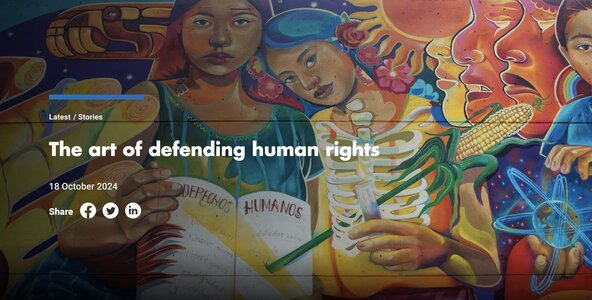By Human Rights Press Staff
October 2024
Saudi Arabian authorities have executed 198 individuals so far in 2024, the highest number of executions recorded in the country since 1990, according to a new report by Amnesty International. Despite repeated promises to limit the use of the death penalty, the kingdom has ramped up executions, often disregarding international fair trial standards.

Background
In recent years, Saudi Arabia has come under international scrutiny for its use of the death penalty, especially in cases involving political dissent and drug-related offenses. Crown Prince Mohammed bin Salman had previously indicated a reduction in capital punishment. However, executions continue to rise, signaling a different reality.
Escalation in Drug-Related Executions
The report highlights a sharp increase in executions for drug-related offenses. So far, 53 people have been executed for such crimes in 2024, a steep rise from just two in 2023. This uptick began in July, with an average of one execution every two days. Most of those executed were foreign nationals, many from Syria, Nigeria, and Egypt. This dramatic increase has raised fears for dozens of individuals currently on death row for similar charges.
One prisoner, known by the pseudonym Omar, who has been on death row for seven years, described his ordeal to Amnesty International: “I’ve been sentenced to death for possessing eight grams of hashish. Where else in the world is someone sentenced to death for this?” He has been in the dark about the status of his appeal, with no legal representation, mirroring the experiences of other prisoners facing capital punishment.
Weaponizing the Death Penalty for Political Repression
Saudi authorities have also used the death penalty to suppress political dissent, particularly targeting members of the Shi’a minority. One recent case is that of Abdulmajeed al-Nimr, a former traffic police officer who was executed in August 2024. While the Saudi Press Agency reported that he was convicted of terrorism-related offenses tied to Al-Qaeda, court documents reviewed by Amnesty tell a different story. Al-Nimr’s charges stemmed from his alleged participation in anti-government protests between 2011 and 2013. Initially sentenced to nine years in prison, his sentence was later escalated to the death penalty following an appeal.
Fair Trial Concerns and Lack of Transparency
Amnesty International’s investigation into al-Nimr’s case revealed significant flaws in his trial. He was detained for two years without access to a lawyer and subjected to solitary confinement, which he says led to a coerced confession. His case exemplifies the broader issues of transparency and fairness in Saudi Arabia’s judicial process, particularly in death penalty cases.
Response and International Perspective
Amnesty International and other human rights organizations have condemned Saudi Arabia’s use of the death penalty. “Sentencing people to death after unfair trials lacking transparency and due process is abhorrent,” said Agnès Callamard, Amnesty International’s Secretary-General. She emphasized that the only way to improve the country’s international standing is through genuine legal reform and adherence to international human rights standards.
Amnesty continues to oppose the death penalty in all cases, regardless of the crime, circumstances, or the individual involved.
Conclusion
Saudi Arabia’s 198 executions this year are a stark reminder of the country’s heavy reliance on the death penalty. With international criticism mounting, the kingdom faces increasing pressure to adhere to its commitments and end this alarming trend.
Additional Resources
For more information on Saudi Arabia’s death penalty practices, visit Amnesty International’s report.

